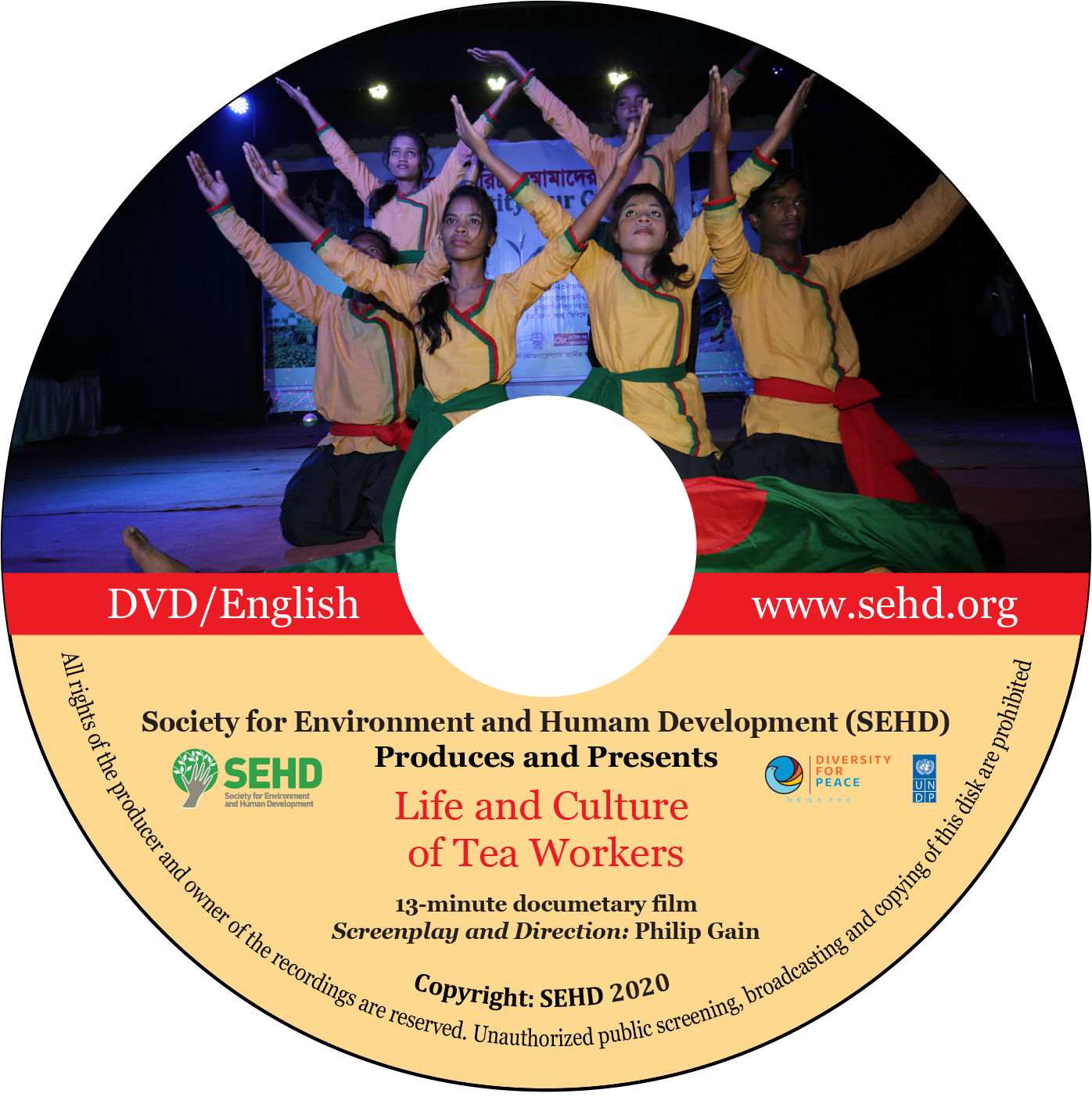Documentary film (Bangla and English, 13 minutes)
Direction and screenplay: Philip Gain
Produced and presented by: Society for Environment and Human Development (SEHD), 2020
 A section of those brought to the tea gardens of Assam by the British planters beginning more than 150 years ago are tea workers in today’s Bangladesh. Most of around 500,000 tea workers and their family members are Hindus and non-Bangalee. Labour lines in the tea gardens are their permanent residence. Most stunning of these tea workers are their diverse ethnic identity, language and culture. In its recent research Society for Environment and Human Development has identified around 80 smaller ethnic communities in the tea gardens. Of these communities, 23 are found in the official list of the ethnic communities.
A section of those brought to the tea gardens of Assam by the British planters beginning more than 150 years ago are tea workers in today’s Bangladesh. Most of around 500,000 tea workers and their family members are Hindus and non-Bangalee. Labour lines in the tea gardens are their permanent residence. Most stunning of these tea workers are their diverse ethnic identity, language and culture. In its recent research Society for Environment and Human Development has identified around 80 smaller ethnic communities in the tea gardens. Of these communities, 23 are found in the official list of the ethnic communities.
The documentary film shows us the life and diverse cultural heritage of the tea workers. The performances of different ethnic communities and language groups are very refreshing. For example, stick dance and branch dance are the key traditions among the Telegu-speaking Mandraji, Almik, Rajbhar, Tanti, Goala, Naidu, Kurmi, Teli and Reli communities. Stick dance is also popular among other communities. It is a common item in any cultural performance. Both boys and girls participate in stick dance. Branch dance is known as ‘Gentu Bajini’ among the Telegu. ‘Gentu’ means jumping and ‘Bajini’ means glorification. We see this in branch dance.
The attempts to keep these cultural traditions alive should be strengthened, trust the Telegu-speaking people.
The Shobdokor people show the colour of their culture with musical instruments. Their artists amuse people with their Dhamail and Shib-Gour dances in social and religious rituals, worships and festivals. Dhamail dance is indispensable in marriage ceremony in the Hindu community. Songs, dances and music we see among other communities in the tea gardens have no end.
Songs and dramas are not only entertaining, they also portray distress, pains and deprivation of the tea workers. Protik Theatre based in Deundi Tea Garden in Hobiganj district is a pioneer in this regard. More than sixty artists of Protik Theatre regularly practise culture and perform on stage. A glimpse of Nij Bhume Parabashi, a drama they perform, which portrays deprivation in the tea gardens is seen in this film. They excel also in patriotic songs and stage drama.
The Monipuri and Khasi are among their nearest neighbours. They are often-time seen together on the stage. The war dance of the Khasi and Mridanga and Rush dances of the Monipuri glisten the stage and fill the hearts of the viewers with joy.
The tea workers’ life is full of pain. Yet their songs, dances and dramas are so diverse and colourful. They share joy with cultural performances not only among themselves, but these are much appealing to their Bangalee neighbours as well. But sadly enough many of their languages and cultural heritages have lost due to neglect. Alongside Bangla language and Bangali culture, their diverse languages and culture need to be protected. The message of this documentary film is clear: cultural exchange can build bridge between the tea communities and the majority Bangalee and state sponsorship and attention of the majority community is crucial for protection of their culture.
